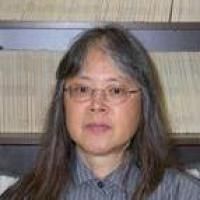Bayesian co-estimation of selfing rate and locus-specific mutation rates for a partially selfing population
Abstract
We present a Bayesian method for characterizing the mating system of populations reproducing through a mixture of self-fertilization and random outcrossing. Our method uses patterns of genetic variation across the genome as a basis for inference about pure hermaphroditism, androdioecy, and gynodioecy. We extend the standard coalescence model to accommodate these mating systems, accounting explicitly for multilocus identity disequilibrium, inbreeding depression, and variation in fertility among mating types. We incorporate the Ewens Sampling Formula (ESF) under the infinite-alleles model of mutation to obtain a novel expression for the likelihood of mating system parameters. Our Markov chain Monte Carlo (MCMC) algorithm assigns locus-specific mutation rates, drawn from a common mutation rate distribution that is itself estimated from the data using a Dirichlet Process Prior (DPP) model. Among the parameters jointly inferred are the population-wide rate of self-fertilization, locus-specific mutation rates, and the number of generations since the most recent outcrossing event for each sampled individual.
Type
Department
Description
Provenance
Citation
Permalink
Collections
Scholars@Duke

Marcy K. Uyenoyama
Marcy Uyenoyama studies mechanisms of evolutionary change at the molecular and population levels. Among the questions under study include the prediction and detection of the effects of natural selection on genomic structure. A major area of research addresses the development of maximum-likelihood and Bayesian methods for inferring evolutionary processes from the pattern of molecular variation. Evolutionary processes currently under study include characterization of population structure across genomes.
Unless otherwise indicated, scholarly articles published by Duke faculty members are made available here with a CC-BY-NC (Creative Commons Attribution Non-Commercial) license, as enabled by the Duke Open Access Policy. If you wish to use the materials in ways not already permitted under CC-BY-NC, please consult the copyright owner. Other materials are made available here through the author’s grant of a non-exclusive license to make their work openly accessible.
